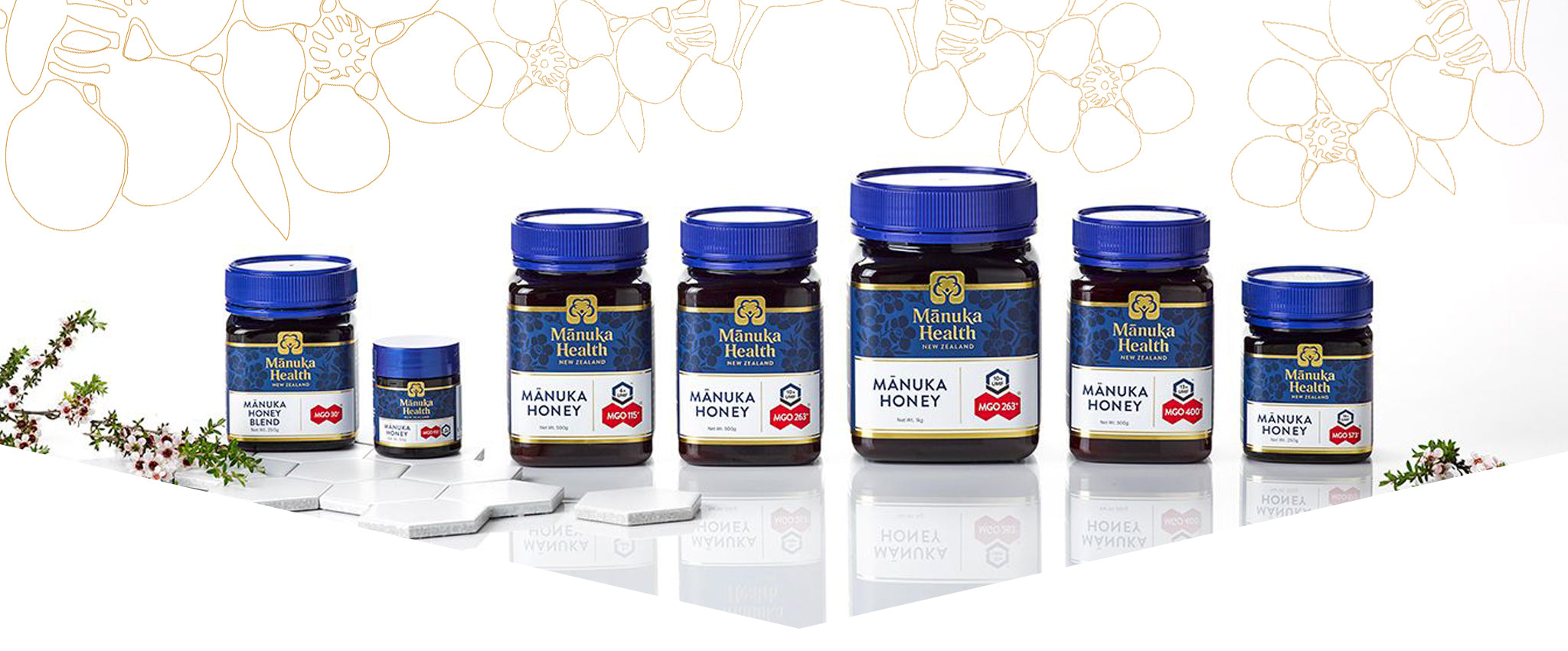

A rare and special honey extensively researched
and recognised for its remarkable natural qualities.
This rare and special New Zealand honey is made from the nectar of the native Manuka plant (Leptospermum scoparium), which our clever bees collect and transform into Manuka honey, highly valued for its rare and complex properties. It is the nectar of the New Zealand Manuka flower that contributes the unique natural ingredients to Manuka honey that make it so different to other honeys.

The first honey to be so extensively researched and
recognised for its remarkable natural qualities
The native Manuka tree (Leptospermum scoparium) is uniquely adapted to thrive in New Zealand’s challenging natural environment. Hardy and resilient, Manuka acts as a natural protector and regenerator of the land.
Manuka has a long history as a respected medicinal plant, traditionally used by the New Zealand Maori people as a remedy. Manuka honey’s special qualities come from the Manuka flower nectar, which contributes unique natural compounds that make Manuka Honey so different from other honeys.

The stages of development of the Manuka
flower - helps to guide us in making the best
quality honey
Manuka honey is rare – it is only made in New Zealand, and can only be made for a few weeks a year when the Manuka plant is in flower.
As spring turns to summer and the weather warms, the increasing temperatures cause the Manuka plants in the far north of New Zealand to begin producing flowers. As the warm weather spreads down the country, so the Manuka blooms follow. There are around 25 days from the first sign of a flower bud to a stage 5 flower which no longer produces nectar. That doesn’t leave a lot of time for our beekeepers to move and place their beehives, and for the bees to gather the nectar! During the season our beekeepers often work tirelessly around the clock, even using helicopters to move beehives to challenging, remote locations.
Weather conditions have to be just right for the bees to make Manuka honey - strong winds will blow the Manuka flowers from the plants, while rain keeps the bees from venturing outside of their hives. The amount of honey produced by a beehive, and the overall honey production each season, can vary greatly depending on weather conditions and how much nectar is produced by the plants.
The required alignment of particular conditions in nature as well as good planning and fast action from our beekeepers are key factors in making this honey so rare and costly.
Our range includes Manuka honey, Propolis and Royal Jelly.